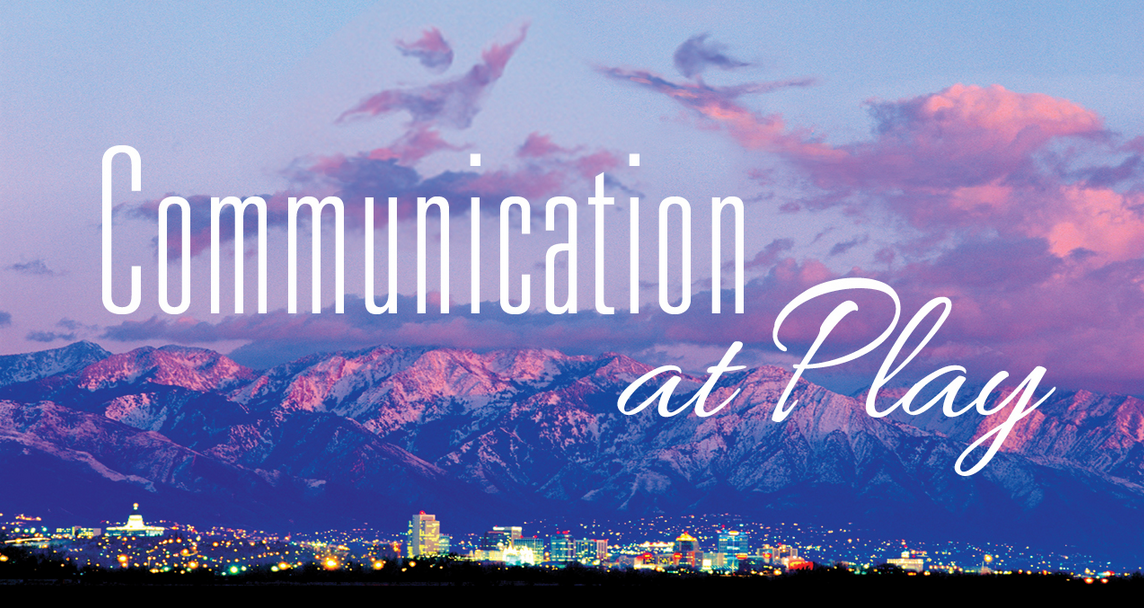 Each November, Communication faculty from across the country gather together to share research, teaching strategies, and commune together at the National Communication Association’s annual conference. This year the conference is hosted in Salt Lake City, UT, and Dr. Marissa Doshi, Dr. Sarah Kornfield, and Comm Major Emily Wolfe are representing Hope College’s Communication Department!
Each November, Communication faculty from across the country gather together to share research, teaching strategies, and commune together at the National Communication Association’s annual conference. This year the conference is hosted in Salt Lake City, UT, and Dr. Marissa Doshi, Dr. Sarah Kornfield, and Comm Major Emily Wolfe are representing Hope College’s Communication Department!
Dr. Doshi rocked this conference with multiple sessions, events, and research presentations. For example:
- Dr. Doshi co-authored award winning research with Josh Barbour and Leandra Hernandez. Their research, “Telling Global Public Health Stories: Narrative Message Design for Issues Management,” was selected as the winner of the 2018 Bill Eadie Distinguished Article Award by the Applied Communication Division of the National Communication Association.
- Dr. Doshi led an intensive seminar for other faculty, “Revising the Playbook: Decolonizing the core Communication Curriculum,” which focused on how faculty can build courses that are more representative, globally engaged, just, and reflective of the mindful diversification in communication studies
- Dr. Doshi presented her research. “Hybridizing National Identity: Reflections on the Media Consumption of Catholic Women in Urban India”
- And Dr. Doshi presented her research, “How We Played with Food: Exploring Stories about Food and Identity through Performative Practices.
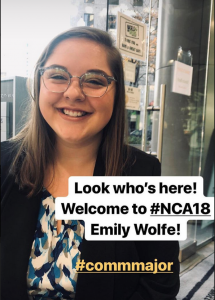 Additionally, Dr. Doshi presented her co-authored research with Comm Major Emily Wolfe. This research was funded, in part, through Hope’s Towsley Award.
Additionally, Dr. Doshi presented her co-authored research with Comm Major Emily Wolfe. This research was funded, in part, through Hope’s Towsley Award.
- Emily Wolfe and Dr. Doshi discussed the ways in which millennial women use Instagram to build, maintain, and reinforce friendships with one another. They focused on women’s ingenious practices and media savvy in navigating this online platform, demonstrating how women harness this digital forum in meaningful ways.
Dr. Sarah Kornfield worked throughout this conference to represent Hope’s research-forward focus and Liberal Arts mandate. For example:
- Dr. Kornfield presented her research on how television presents pregnant bodies in two different ways. First, Dr. Kornfield presented research, “Televisual Pregnancy Beauty,” featuring her recently published article in Feminist Media Studies.
- The second way Dr. Kornfield presented her mediated pregnancy research was through her research presentation, “Performing Televisual Pregnancy.”
- Dr. Kornfield also promoted excellence in the Liberal Arts through her forum presentation, “Faculty Labor at Liberal Arts Colleges,” in which she represented the unique role of the Communication discipline within a Liberal Arts undergraduate academy.
Follow us on Twitter @HopeCommDept and Instagram: HopeCommDept!


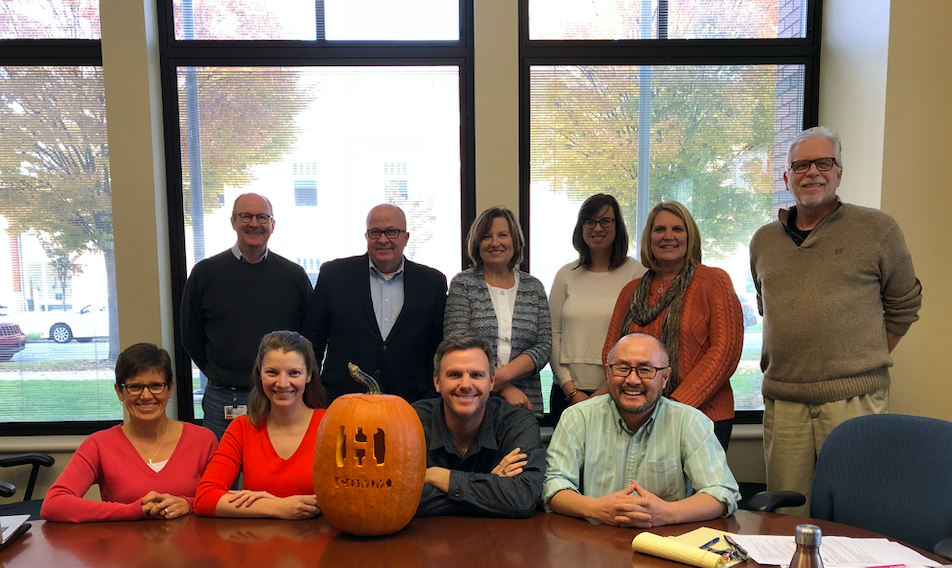
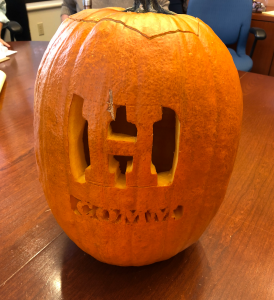

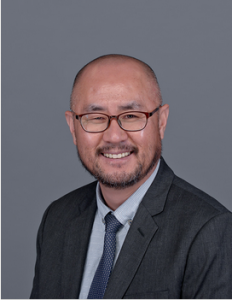 Dr. Choonghee Han describes his approach to advising, saying,
Dr. Choonghee Han describes his approach to advising, saying,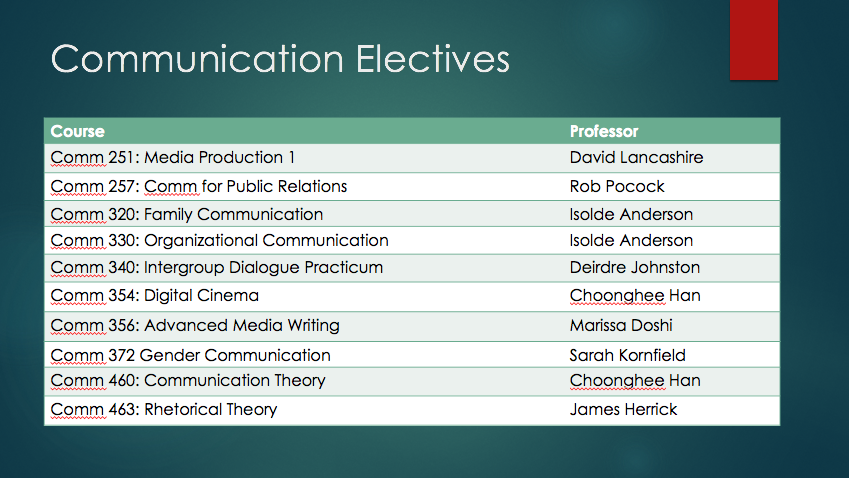

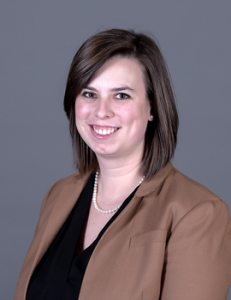
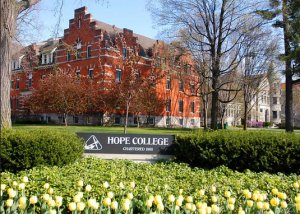
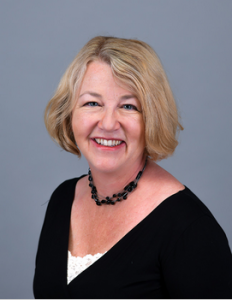 Dr. Johnston is appointed as the Interim Associate Dean of Global Education. She leads Hope’s faculty-focused global efforts by spearheading the faculty development for global education, leadership in developing a global curriculum, faculty-led off campus study programs, faculty exchange programs, and the development of intercultural competencies across faculty, staff, and students. Dr. Johnston’s research, teaching, leadership strengths, and expertise in globalized curricula make her uniquely qualified to lead Hope forward, preparing students for lives of leadership and service in a global society.
Dr. Johnston is appointed as the Interim Associate Dean of Global Education. She leads Hope’s faculty-focused global efforts by spearheading the faculty development for global education, leadership in developing a global curriculum, faculty-led off campus study programs, faculty exchange programs, and the development of intercultural competencies across faculty, staff, and students. Dr. Johnston’s research, teaching, leadership strengths, and expertise in globalized curricula make her uniquely qualified to lead Hope forward, preparing students for lives of leadership and service in a global society.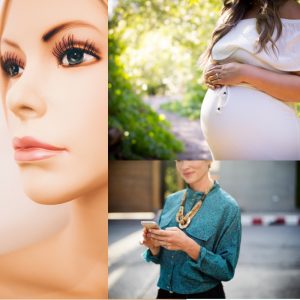
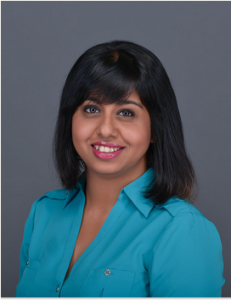 Dr. Marissa J. Doshi, assistant professor of communication, makes these claims about women’s health apps in
Dr. Marissa J. Doshi, assistant professor of communication, makes these claims about women’s health apps in 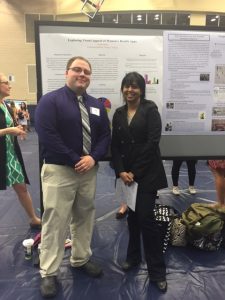
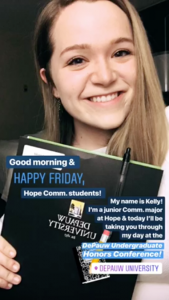 In April, two Hope College seniors, Kelly Arnold and Karey Frink, traveled with Dr. Lauren Hearit to present their paper at the annual DePauw Undergraduate Honors Conference. Kelly and Karey had developed a project in Dr. Hearit’s Research Methods course that examined how organizational identification is impacted by different types of on-campus student groups. Their paper was competitively selected for presentation. Kelly said:
In April, two Hope College seniors, Kelly Arnold and Karey Frink, traveled with Dr. Lauren Hearit to present their paper at the annual DePauw Undergraduate Honors Conference. Kelly and Karey had developed a project in Dr. Hearit’s Research Methods course that examined how organizational identification is impacted by different types of on-campus student groups. Their paper was competitively selected for presentation. Kelly said: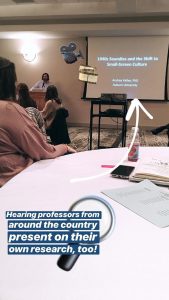 As the conference was a working conference, after Kelly and Karey presented their research project, they received feedback from scholars at Auburn University, The University of North Carolina at Chapel Hill, and the University of Michigan. Karey said:
As the conference was a working conference, after Kelly and Karey presented their research project, they received feedback from scholars at Auburn University, The University of North Carolina at Chapel Hill, and the University of Michigan. Karey said: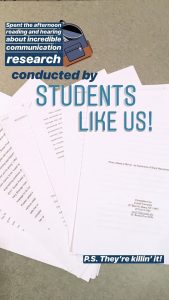 Kelly and Karey had the opportunity to hear research presentations from students at other Liberal Arts institutions, as well as keynotes from scholars in the fields of film and media studies, and practitioners. A highlight for both students was a keynote address from Anne Helen Peterson of BuzzFeed News. Dr. Hearit said:
Kelly and Karey had the opportunity to hear research presentations from students at other Liberal Arts institutions, as well as keynotes from scholars in the fields of film and media studies, and practitioners. A highlight for both students was a keynote address from Anne Helen Peterson of BuzzFeed News. Dr. Hearit said: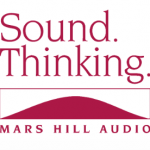 Dr. James Herrick was recently featured on
Dr. James Herrick was recently featured on 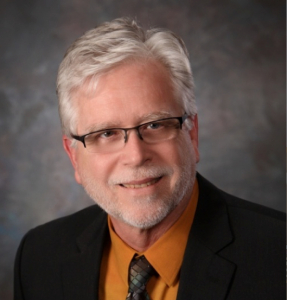 Transcendence: Human Enhancement and the Rhetoric of the Future (2017). Specifically, Dr. Herrick described transhumanists’ aspirations for how humans can meld with technology and become “post-human.” Dr. Herrick focused on how these aspirations are rendered plausible through stories. While uploading human consciousness into a computer may seem (and be) impossible, technofuturist stories shape how laws, policies, industries, aspirations, and everyday technology use play out. Indeed, technology increasingly shapes our work environments, children’s educational environments, the medical treatments we undergo, the homes we live in, the relationships we value, and the military and security systems we champion.
Transcendence: Human Enhancement and the Rhetoric of the Future (2017). Specifically, Dr. Herrick described transhumanists’ aspirations for how humans can meld with technology and become “post-human.” Dr. Herrick focused on how these aspirations are rendered plausible through stories. While uploading human consciousness into a computer may seem (and be) impossible, technofuturist stories shape how laws, policies, industries, aspirations, and everyday technology use play out. Indeed, technology increasingly shapes our work environments, children’s educational environments, the medical treatments we undergo, the homes we live in, the relationships we value, and the military and security systems we champion.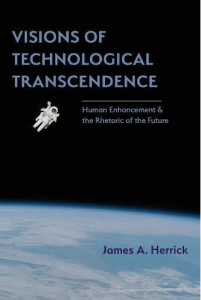 progress and story of evolution. These stories promise that technology will save humanity from disease, poverty, despair, and death. As such, technological progress becomes an end in itself since it is featured as humanity’s salvation. These stories are optimistic, but falsely so: they promise that technology will save humanity and provide humans with ultimate control over their environment and bodies. However, technology is only a tool, it cannot offer meaning, purpose, or salvation. Yet these technofuturist stories are persuasive and comforting, and they are fundamentally shaping our cultural practices, laws, and regulations, creating a future in which technology operates as a god.
progress and story of evolution. These stories promise that technology will save humanity from disease, poverty, despair, and death. As such, technological progress becomes an end in itself since it is featured as humanity’s salvation. These stories are optimistic, but falsely so: they promise that technology will save humanity and provide humans with ultimate control over their environment and bodies. However, technology is only a tool, it cannot offer meaning, purpose, or salvation. Yet these technofuturist stories are persuasive and comforting, and they are fundamentally shaping our cultural practices, laws, and regulations, creating a future in which technology operates as a god.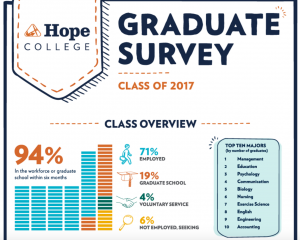 Nineteen percent of Hope College’s 2017 graduating class started graduate school this Fall! Hear from a recent Communication Major as she begins her graduate school experience.
Nineteen percent of Hope College’s 2017 graduating class started graduate school this Fall! Hear from a recent Communication Major as she begins her graduate school experience.